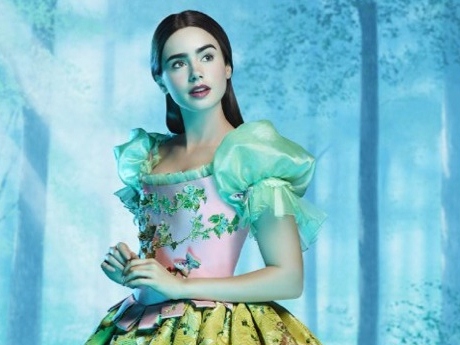
Julia Roberts may no longer reside on the A-list, but she’s too busy snacking on scenery in “Mirror Mirror” to care.
The new film, part of the fairy tale renaissance currently plaguing both TV (“Grimm,” “Once Upon a Time”) and theaters alike, follows Roberts’ delicious lead. No one takes themselves too seriously here, be it Snow White (Lily Collins) or the handsome prince (Armie Hammer) smitten with her.
Yet the story itself spoils some of the fun. Like too many movies written by committee, it’s episodic and bland, a tale that springs to life every 15 minutes without sustaining that sense of whimsy.
The saga of Snow White remains more or less intact, although the Evil Queen (Roberts) opens the film by telling us it’s her story we’re watching, not that of our fair maiden.
The Evil Queen wants to raise taxes even higher on her poverty-stricken subjects to fill her barren coffers. When that gambit fails – a quick shout out to Capitalism 101 – she decides to woo a local prince (Hammer) to share in his wealth.
Meanwhile, Snow White teams up with a septet of bandit dwarfs to stop the wedding and undermine the Queen’s domination of her subjects.
At times, “Mirror Mirror” wants to be another wink-wink, meta-comedy aimed not at pre-teens but our inner hipster. Then we see Hammer’s character cursed to think he’s a lovable hound, and he spends several scenes panting, begging and otherwise acting ridiculous. Even the wee ones might find these sequences too broad.
Director Tarsem Singh keeps the tone consistently light, but the script’s inner workings let him down. So. alas, does Roberts. The erstwhile “Pretty Woman” is having a grand time playing the film’s heavy, but her wavering accent is a distraction, and the screenplay isn’t quite sure how to define her villainy.
The dwarfs are more consistently amusing, delivering belly laughs and genuine camaraderie to keep the film in line.
“Mirror Mirror” reflects the worst of modern-day storytelling, but there’s enough visual panache and good cheer to curry our favor. And then there’s Roberts, whose sense of fun and abandon is rightfully infectious even if it’s as flawed as other parts of the film.

COMMENTS
Please let us know if you're having issues with commenting.